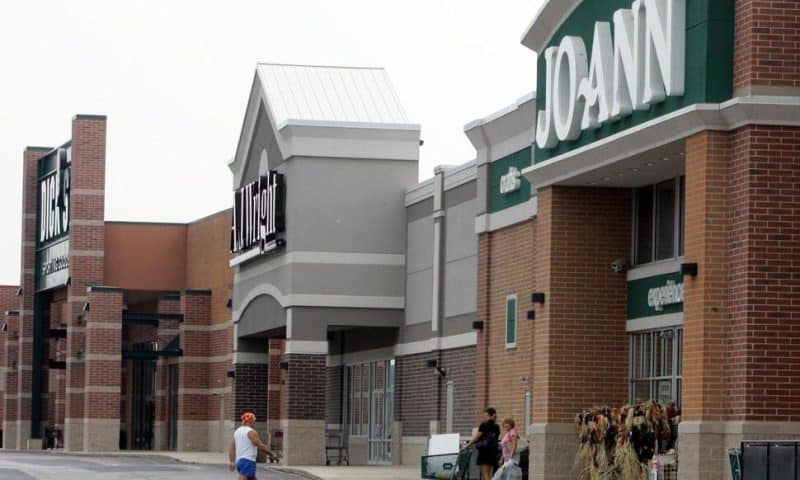Fabric and crafts retailer Joann has filed for Chapter 11 bankruptcy protection, as consumers continue to cut back on discretionary spending and pandemic-era hobbies
NEW YORK — Fabric and crafts retailer Joann has filed for Chapter 11 bankruptcy protection, as consumers continue to cut back on discretionary spending and some pandemic-era hobbies.
In a Monday statement, the Hudson, Ohio-based company said that it expected to emerge from bankruptcy as early as the end of next month. Following this process, Joann will likely become privately-owned by certain lenders and industry parties, the company added — meaning its shares would no longer be publicly traded on stock exchanges.
Joann’s more than 800 stores and its website will continue to operate normally during the bankruptcy process. Vendors, landlords and other trade creditors should also not see any pay disruptions, the company said, pointing to a deal it had struck with most of its shareholders for financial support.
In addition to Monday’s filing in U.S. Bankruptcy Court, Joann said it had received about $132 million in new financing and expected to reduce its balance sheet’s funded debt by about $505 million.
Scott Sekella, Joann’s Chief Financial Officer and co-lead of the CEO’s interim office, stated that the transaction support agreement marked a “significant step forward” in addressing the company’s capital structure needs. He added that the retailer remains committed to operating as usual so it can “best serve our millions of customers nationwide.”
Joann’s bankruptcy filing arrives amid both a slowdown in discretionary spending overall and during a time consumers are taking a step back from at-home crafts, at least relative to a boom seen at the start of the COVID-19 pandemic.
“Crafts, which did extremely well during the pandemic, have fallen back into slight declines as people find other things to do,” Neil Saunders, managing director of research firm GlobalData, told The Associated Press Monday — noting that many are now sacrificing these artsy activites to spend money on experiences outside of the house, such as going out to eat or attending sporting events.
This puts pressure on all retailers with skin in the crafts market. But, Saunders added, challenges specific to Joann include the company’s sizeable debt and rising competition.
Rivals like Hobby Lobby, for example, offer lower prices while “casual crafters” can now go to stores like Target for ample art supplies and kits, he said — adding that Joann has also let its “specialist type service” slide some with previous staffing cuts.
“There is still a place for Joann, but it’s going to take a lot of work to get back into a stable position,” Saunders said. “I think this bankruptcy was always inevitable. And actually, despite the disruption it causes, it’s a very good first step for getting the company back on track.”
Joann listed more than $2.44 billion in total debts and about $2.26 billion in total assets in Monday’s Chapter 11 petition, which was filed in Delaware, citing numbers from October 2023.
Joann previously went private in 2011 — when it was purchased by Leonard Green & Partners for about $1.6 billion. A decade later Joann, still majority owned by the equity firm, returned to the public market with an initial public offering at $12 a share.
The company was born back in 1943, with a single storefront in Cleveland, Ohio, and later grew into a national chain. Formerly known as Jo-Ann Fabric and Craft Stores, the company rebranded itself with the shortened “Joann” name for its 75th anniversary.

